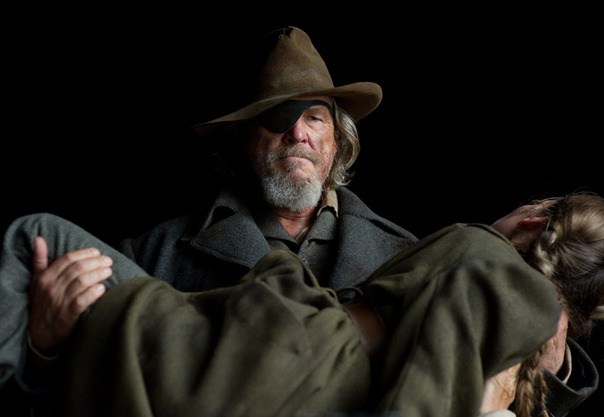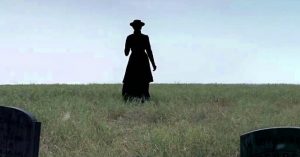People do not give it credence that a fourteen-year-old girl could leave home and go off in the wintertime to avenge her father’s blood but it did not seem so strange then, although I will say it did not happen every day. I was just fourteen years of age when a coward going by the name Tom Chaney shot my father down in Fort Smith, Arkansas, and robbed him of his life and his horse and $150 in cash money plus two California gold pieces that he carried in his trouser band. – Mattie Ross, True Grit
Vilonia, AR. Charles McColl Portis’ funeral was February 25th at the Second Presbyterian Church in Little Rock, Arkansas just thirty some-odd miles from my home. It was an intimate and understated affair, just as Portis might prefer. A close friend reminded us of Portis’ genuine humility; the simple American-flagged draped coffin appeared small compared to the man in repose. His friend’s thoughtful, tender words came after “A Mighty Fortress is our God,” the reading of Psalm 23, II Timothy 1:8-14, a homily, an Affirmation of Faith in Christ and “Eternal Father, Strong to Save.”
They were followed by Prayers of Thanksgiving, The Lord’s Prayer, and “Amazing Grace.” Even in death Portis managed, with the love of those who knew him best, to make the service about something other than himself. Music is important to the narrative, as Portis expressed in suggesting to the Coen Brothers they use an “old-timey” hymn in the closing scene of their remake of True Grit. The hymns chosen for the closing of Portis’ earthly life seemed fitting for the private man his friends called “Buddy.” He was buried in South Arkansas, where he grew up around El Dorado and Hamburg, yet the action in his most famous novel takes place in Western Arkansas near the Oklahoma line.
Portis’ literary front porch view extended across a wide swath of our state that included the rich story-making River Valley area from Petit Jean Mountain to the highest peak in Arkansas, Mount Magazine. As a person deeply connected to “place,” Portis honored our state at every turn of the page. He also honored our citizens who, apart from popular stereotyping, are not only rooted to place, but rooted in being. His fictional Ross family is a microcosm of many Arkansans who exhibit the best in humanity while struggling with the human frailties that strike us all. Paradoxically, based on our hillbilly reputation around here, Portis chose a “thinker” to be the heroine of his story. Not since C.S. Lewis’ Orual in Till We Have Faces has a fictional female so enchanted and terrified me.
Portis is the maker of Mattie Ross and the adventure that leads a close reader to take stock in the high cost of revenge. French philosopher René Girard makes a universal concept from such matters in his mimetic theory. As in Shakespeare’s Hamlet, most of us recognize the poignancy of a child (or parent) seeking to right the most taboo of violent acts—kin slaying. This is the theme of the first literary English language epic Beowulf, and it is the quest that Mattie is on when she picks the “meanest,” most “pitiless” marshal in Fort Smith to track her daddy’s killer. Of course we are cheering her on, just as we did that Texas father back in 2012 that killed the man he found molesting his four-year-old daughter.
U.S. Marshal Reuben J. “Rooster” Cogburn and Mattie bring a type of vigilante justice to Tom Chaney, and we are glad, but Portis doesn’t allow us to be easy about it. There is always a poison fit for the avenger, even if she is a mere child. In Hamlet’s case it was at the point of a sword; in Mattie’s, it is on the pointed fang of a rattlesnake. She shoots Chaney and the gun’s recoil casts her backward into a pit. Revenge is a weapon with a nasty return. Mattie lost her arm, Hamlet lost his life, and Beowulf lost an entire tribe (the Geats).
The infamous hanging Judge Isaac Parker of Fort Smith paid a price too for what folks around there called the “Parker slaughterhouse.” Not the least of which was sixty-five marshals killed on the job. Judge Parker converted to Catholicism on his deathbed and Mattie speculates it was because his former religion was a bit too milquetoast.
If you had sentenced one hundred and sixty men to death and seen around eighty of them swing, then maybe at the last minute you would feel the need of some stronger medicine than the Methodists could make.
Highly opinionated on everything from politics to religion, Mattie at fourteen thinks she knows it all. Her naiveté is apparent when she tries to convince Cogburn that she has what it takes to hunt down a ruthless murderer.
“I will not slow you down. I am a good enough rider.”
“I will not be stopping at boardinghouses with warm beds and plates of hot grub on the table. It will be traveling fast and eating light. What little sleeping is done will take place on the ground.”
“I have slept out at night. Papa took me and Little Frank coon hunting last summer on the Petit Jean.”
“Coon hunting?”
“We were out in the woods all night. We sat around a big fire and Yarnell told ghost stories. We had a good time.”
“Blast coon hunting! This ain’t no coon hunt, it don’t come in forty miles of being a coon hunt!”
Mattie’s Christianity is also immature as she fails to see the “spirit” of a thing, as opposed to just the “letter.” A Southern Presbyterian as an adult, she made a stark distinction with other sects.
I say nothing against the Cumberlands. They broke with the Presbyterian Church because they did not believe a preacher needed a lot of formal education. That is all right but they are not sound on Election. They do not fully accept it. I confess it is a hard doctrine, running contrary to our earthly ideas of fair play, but I can see no way around it.
This is Mattie the narrator speaking as a mature woman, though, who knows by experience that life is not based on “fair play” any more than the doctrines of Grace that she has come to embrace. She was raised a Cumberland Presbyterian—it was the faith of her father. He was educated in the common school, an honorable man without an unkind bone in his body.
Mattie probably never fit easy with the Cumberland sect due to her natural bent toward a right balance of the ledger; there was no margin for mercy. She confessed she was a “Martha . . . always troubled and agitated by the cares of the day,” while her mother was a “Mary” who chose “that good part.” Admittedly, her “mean streak” didn’t come from her parents, but it served her ends because Mattie was never “one to flinch or crawfish when faced with an unpleasant task.” If she were Hamlet, we get the idea that King Claudius would be long dead, prayers or no prayers.
It’s easy to understand why Mattie felt responsible for her parents. If her father had a failing, “it was his kindly disposition.” They were good-natured people who felt it right to be their “brother’s keeper” and this was the problem. Her Papa took in that old “riffraff” Chaney and gave him a “job and a place to live.” A bullet through the head was all he got for his trouble.
Mattie thought her father a “handsome” man that reminded her of a “gallant knight of old.” For all her tough exterior, she was a little girl like most whose daddy is every bit the medieval knight, her first love. The news of his death was a “thunderclap” and the sudden realization that her father would never “see us or hold us again, nor would he ever again harken to the meadowlarks of Yell County trilling a joyous anthem to spring.”
Betrayal, which is what Mattie felt after her family had been so good to Chaney, is a strong emotion that not only causes us to question our beliefs, but our ability to know others. Who can you trust? We thought we “knew” before all hell broke loose. Now we are undone from top to bottom.

After my husband abandoned our family in Cypress Valley, Arkansas, there was nothing that would ever be the same again. What I thought was true turned out to be all wrong. The worst of it wasn’t living with a person who led a double life, it was my own deficiency in not knowing. It was during this period that I read Portis. He had a peculiar way of getting in my head. Mattie said what I wanted to say, but never had the courage. She hunted down the betrayer to make him pay for what he did. I wanted to do that. Someone needed to pay for the fatherless tangled mess of arms left empty in Faulkner County. Where was my Rooster Cogburn? Where was my Judge Parker? But Portis wasn’t leading me that direction. He was actually warning me off.
While Mattie was at times introspectively honest about her shortcomings, she was still blind to a devastating weakness: she kept the financial books on her father’s farm and the exact amounts that Chaney stole in the same way that she kept the ledgers on justice. Mattie is a ball of fury looking to put the hurt on and justified in doing so while standing on her high moral ground. At least until that high ground gives way to the cavern pit. Her wrath is a placeholder for the Almighty and she will stand in his stead. But Portis, her maker, was wise to see where this leads. He knows human nature far better than most of us.
Yet, as Girard explains to us in his theory, there is a way to transcend that human foible of retribution, of an “eye for an eye.” It is by means of the God who took that wrath upon himself and did not repay us for our blood guilt. It is the “Amazing Grace” sung at Portis’ funeral that we are to imitate. Portis doesn’t take us to the solution straight-on; a good author wouldn’t. He simply allows us to experience Mattie’s journey and decide for ourselves whom we shall follow. For all her Bible quoting, Mattie failed to see what the Lord required of her in Micah 6:8 (KJV):
He has shewed thee, O man, what is good;
and what does the LORD require of thee,
but to do justly, and to love mercy,
and to walk humbly with thy God?
Even though we, like Mattie walk imperfectly in what is good, the God of time and place comes to the rescue. Sometimes it is by way of the most unlikely hero. The rough drunk one-eyed lawman Rooster Cogburn was actually a grace sent to not only right the wrong done to Mattie, but to rescue her from the wrong she did to herself. His partial blindness is better than Mattie’s perfect vision. And since “all things work together for good” we feel that Mattie was just what Cogburn needed at the time too. Perhaps she was his assignment in this world, the thing that gave him purpose, if even for a brief moment. He saved her life, but she remained maimed.
The critics of True Grit make hay about the “unhappy” ending. I don’t see it that way. Portis was warning me that a bridge was out ahead if I, like Mattie, sought to make the betrayer feel my pain. In this way, he was writing a happier ending for all those readers who take the message to heart. As one who likes to think I know Mattie well, her ending was not unhappy.
She was in the Arkansas that she loved, on the land of her daddy. Releasing her younger siblings to chase their dreams elsewhere, Mattie “chose the good part” in caring for her ailing mother. Though a spinster, she is a successful banker and brings Cogburn’s remains home to rest in the blessed rich soil of Yell County near Dardanelle, where he will lay beside her dear father. Place is no small detail for Portis. William Whiting, the author of the second funeral hymn (“Eternal Father, Strong to Save”), wrote poems of “Rural Thoughts and Scenes.” Mattie’s happy ending, like Portis, may have been in enjoying a simple life at that place we call “home.”
Say not that our morning walk
Was made in vain; to Nature’s lover, nought
Can e’er be vain; nought can be lost to him
Who seeks to find some good in every thing,
Who strives to read with wisdom-seeking heart
The lessons of the fields, the open book
Which Nature spreads before each thoughtful eye
Mattie’s missing limb is a reminder to her, not of what she lost on her journey, but all that she gained. Mercy and grace followed her all the days of her life. The truest grit Mattie expressed was the courage and determination to find meaning in time and place.
Portis saved a portion of me too. Mattie Ross is one of Lewis’ “myriad eyes” that showed me through reading great literature that “in worship, in love, in moral action, and in knowing, I transcend myself; and am never more myself than when I do.”
I cannot think of a truer, grittier ending for Mattie or myself than the lyrics of another hymn chosen for Portis’ funeral:
Did we in our own strength confide, our striving would be losing
Were not the right Man on our side, the Man of God’s own choosing
Dost ask who that may be? Christ Jesus, it is He
The Lord of hosts His name, from age to age the same
And He must win the battle /
And though this world with devils filled should threaten to undo us
We will not fear, for God hath willed His truth to triumph through us
The Prince of Darkness grim, we tremble not for him
His rage we can endure, for lo, his doom is sure
One little word shall fell him
—Martin Luther (1483-1546), “A Mighty Fortress is Our God”















What a lovely and insightful piece of writing, a wonderful appreciation of a great writer. Thank you.
Mr. Buhr,
Thank you for taking the time to read this tribute. Portis is an Arkansas literary treasure and I hope that more common Arkansans (like Mattie’s father), come to recognize the beauty in “True Grit” the novel (not just from what they gather in the two films).
Your words were inspirational and thoughtful as they evoked inner most feelings and emotions related to things such as family, place, faith, courage, and revenge that we all experience to some degree in our lives.
Your mastery of writing and response to challenges in your life are admirable accomplishments.
Dr. Mitchell,
Thank you for your kind words. I believe good literature allows the reader to locate themselves in the story — to identify with a character. Great literature has the added benefit of showing the reader a facet of themselves that they could have learned no other way except through story. Portis rises to this level for me, and I believe for others too (thus we see the success of two films).
Nathan told King David a “story” in order to get him to see himself as he was — a murderer. I think if Nathan would have shared this truth any other way with the King, things might have gone sideways. However, David “saw” himself in the story Nathan told and he was outraged! David declared that man should lose “four times” what he took. As we know, David lost four sons and we see a humble man walk through those tragedies as a king who “knew” himself well (juxtaposed to King Lear, who only knew himself “slenderly”).
Being a transplanted Arkansan, I had no idea of the richness and beauty contained in True Grit. I simply remember my five little girls (and later a son) watching a great movie. (One daughter in particular bonded with True Grit especially Mattie and she loved seeing the Yell County sign as we drove to Fort Smith.) I never cease to be amazed at the hidden jewels in our state of which Charles Portis should rank as a brilliant diamond. This eulogy brings light and warmth to a man who evidently did not want the limelight, but his Rooster Cogburn and Mattie have always been there to speak volumes as Ms. Castle reveals the depth beneath the intriguing story line. It may be a nine minute read, but that nine minutes will result in contemplation about the intricacies of relationships and how literature reveals much about us if we dare to delve into the deep waters.
Melinda,
I appreciate you sharing your personal attachment to Portis’ “True Grit.” My own family on my grandpa’s side came from Yell county. As a child, we would drive from Oklahoma over to Dardenelle to visit his two sisters. I remember the first time we drove up Petit Jean Mountain and saw Winthrop Rockefeller’s car collection. It was like a wonder of the world that in the middle of Arkansas you would find a New York millionaire on his cattle ranch. Interesting side note: in Rockefeller’s museum on top of Petit Jean, inscribed as you enter is Micah 6:8.
You are correct about daring the “deep waters” — it is a dangerous business to see our reflection, who we really are…and this is precisely how good literature functions. We begin without “faces” as C.S. Lewis illustrates in “Till We Have Faces” (a phrase from I Corin. 13:12), that is, we know ourselves but little. This, as Shakespeare illustrates in King Lear, is no way to live. It is the “unexamined life.” I appreciate that you and your family are taking time to consider deeply your image(s). Scripture tells us that one day we will “know as we are known” — but for now we only know “dimly.”
Portis’ humility let us to know that his light of “knowing” shown a bit brighter than many of us. He at least knew better than to bask in the false accolades of fame. Which reminds me of Rudyard Kipling’s “If.” But I will stop here and just say thank you again.
A beautifully written tribute seamlessly weaving human characteristics we all emote during the storms of life, as in Charles Portis True Grits Mattie and yourself. Your well-balanced integration of literature, history, poetic hymns of old, scripture, and faith say as much about Charles Portis as they do yourself. This was a very enjoyable and easy read from a very talented writer.
Dr. Mills,
Thank you for your kind comments. I hope that more pastors and teachers will take advantage of literary apologetics in sharing the Gospel. It is a powerful medium. Human beings are story-tellers from top to bottom. Music, TV, and film are vehicles we use to “carry stories” — stories are made from the ingredients you mention (history, poetry, music, Scripture, etc.). Scripture is the ingredient that has most informed English literature from the beginning. Modern Christians should learn the art — as Lewis and Tolkien did.
A great read. Barbara has a gift of writing which brings the reader into the story to see eternal truths.
Dr. Jones, thank you for taking time out of your busy schedule to read the article.
Perhaps we can continue to hone our literary apologetics, especially as we see the allure of story in the form of subscription TV. I think there are many Christian academics working to dialogue with the culture over topics of interest to our simply “being human.” Politics, environment, religion, law and government are all open to discussion.
FPR is an example platform (a table built to invite us to small gatherings of working out our thoughts together). We are encouraged to stay engaged in the culture and the stories that are told.
Mattie Ross at least had a “thought” on wide-ranging topics, even if those “thoughts” were initially “untested” by time and experience. If Portis did anything, he attempted to tear down the stereo-typical notions that people of the good earth are people without high thoughts. Written in the 60’s, “True Grit” used the most unlikely of exemplars in a young female and an old has-been. It was a perfect union of the spectrum of “time” meeting “place.” How much better could we all be if we got the full picture (beginning to end), the birds-eye view of our lives? That is the magic of story. It condenses “time and place” so that if we “read well” we can transcend our lives and chart better future courses. As Lewis eluded to – we become “more ourselves” the better part of the imago dei….that “eternal truth” that you speak of.
I appreciate your academic work with future leaders.
Another great one! Thanks for sharing .
Thank you, this was great.
Comments are closed.